Impact Makers: Zeinaba Narabene
Championing environmental education and climate action through Green Schools in Mali
By Climate Champions | November 17, 2024
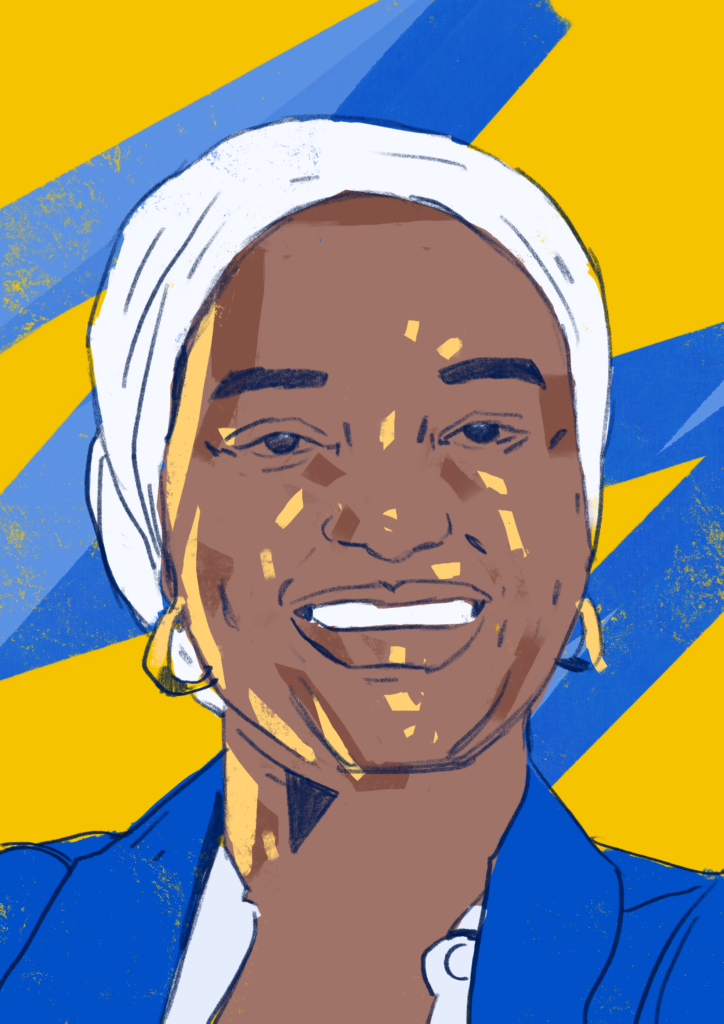 NAME
NAME
Zeinaba Narabene
TITLE
President, Réseau des Jeunes Sahéliens pour le Climat au Mali (RJSCLIM)
LOCATION
Bamako, Mali
ABOUT
Zeinaba Narabene is the driving force behind the Green Schools Project, an initiative implemented by the Réseau des Jeunes Sahéliens pour le Climat au Mali (RJSCLIM) through the GreenKids programme. The project aims to integrate environmental education into Mali’s education system and raise awareness among young students about the critical environmental challenges facing the country due to climate change, particularly in the Sahel region.
The GreenKids initiative targets 200 students aged 9 to 14 from 20 schools in Bamako and surrounding areas, engaging them in activities like tree planting, recycling workshops, and interactive sessions on eco-citizenship. By educating students on sustainable development and eco-friendly practices, the project is helping create a new generation of climate-conscious individuals who can advocate for climate action and sustainable development within their communities.
MOTIVATIONS
“As a telecommunications engineer by training, my passion for environmental protection emerged very early on. My commitment began with my first involvement in an association, the Junior Chamber International, where I started to make connections between our daily lives in the Sahel, particularly in Mali, and the consequences of climate change: rising temperatures, drought, water scarcity, floods, and so on.
This awareness quickly made me realize the importance of my role in the fight against climate change, which led to the creation of the Network of Young Sahelians for Climate in Mali. My goal is to raise awareness among as many people as possible to foster collective consciousness and trigger global actions to mitigate the damage, adapt to the effects of climate change, and become more resilient.
The GreenKids project was born from the realization that it is often easier to raise awareness among children than among certain adults. By involving them from a young age, we can create a new generation that is aware of environmental issues and ready to take action. Early education of future generations on environmental challenges will strengthen awareness and commitment.
The effects of climate change have a devastating impact on children, as they threaten their ability to survive, grow, and thrive. It is therefore crucial to protect our children by preparing them.”
IMPACTS
Before
While challenges persist, before the launch of the GreenKids Project, students and the broader population in Bamako had limited awareness of environmental issues:
- Students in the target schools lacked knowledge about the impacts of climate change and sustainable development.
- Issues like deforestation, soil erosion, and unpredictable weather patterns exacerbated poverty and reduced the community’s capacity to adapt to climate change.
- Environmental stewardship was not a priority for schools, and students had few opportunities to engage in meaningful climate action or learn about sustainable practices.
After
Since implementing the GreenKids Project, several impactful changes have been made:
- 200 students from 20 schools, 40% of whom are girls, have been sensitized on climate change, sustainable development, and eco-friendly practices, becoming ambassadors for climate action in their communities.
- 200 trees have been planted across 20 schools, contributing to reforestation efforts and improving the local environment.
- Donation of recycled furniture has reduced waste, promoted recycling, and improved school facilities.
- Environmental clubs have been created within the schools, ensuring ongoing student participation in climate action projects and nurturing a culture of environmental stewardship.
- The project has sparked discussions with policymakers about the integration of environmental education into Mali’s national school curriculum.
CHALLENGES
Zeinaba and her team faced several challenges in implementing the GreenKids Project:
- Many participating schools had limited space and infrastructure, making it difficult to introduce activities like tree planting and recycling. The team strategically planted trees along school frontages to maximize the impact despite space constraints.
- Raising awareness among students, teachers, and the community was challenging due to the low prioritization of climate action. Hands-on workshops and interactive sessions helped build engagement and ownership among participants.
- Engaging public schools was difficult due to administrative delays. The team initially adjusted expectations and included more private schools, but interest from public schools grew as the programme progressed.
- Delays in funding impacted the timeline, but the team mobilized internal resources and negotiated pre-financing with service providers to keep the project on track.
- Coordinating activities across multiple schools in different locations required careful planning. The establishment of school-based environmental clubs helped maintain continuity, and a dedicated steering committee oversaw project coordination.
GOALS
“My vision for the future of the GreenKids Project is to transform trained children into true ambassadors of environmental education, capable of raising awareness among their peers and even their families. The green clubs in each school will be the pillars of this mission, reinforcing the importance of climate action and encouraging strong advocacy for the inclusion of environmental education in the Malian school system.
My ultimate goal is for every Malian child to learn eco-responsible practices from a young age, so they can become engaged citizens aware of climate issues. I hope the GreenKids project will expand regionally, with GreenKids clubs throughout Africa, to build a pan-African generation ready to act for a sustainable future.”
ZEINABA’S ADVICE
“To introduce environmental education in communities where climate action is not yet a priority, it is essential to demonstrate the direct impact it can have on their daily lives. My advice is to never stop advocating for this cause, to remain persistent, and to multiply awareness-raising actions. Change often happens gradually, but every small step can have a significant long-term impact. Stay engaged, show concrete examples, and build a local support network to strengthen your message.”
HOW YOU CAN HELP
The GreenKids Project is shaping a new generation of environmentally conscious youth in Mali by integrating climate action into education. Here’s how Zeinaba says you can support:
For businesses and investors: You can support GreenKids by providing resources to develop sustainable infrastructure in schools, such as benches made from recycled plastic. By funding educational workshops or supporting the creation of teaching materials for green clubs, you contribute to building a more sustainable future for generations to come.
For NGOs and policymakers: We encourage NGOs and decision-makers to collaborate with the GreenKids programme to facilitate the integration of environmental education into the school curriculum. Your support in policy and advocacy can be crucial for making this education a national priority and for its expansion to other countries in Africa.
For individuals and donors: You can contribute by sponsoring specific projects, such as tree planting in schools or developing educational tools for young people. Every donation helps to expand the programme and raise awareness among more children about climate change.
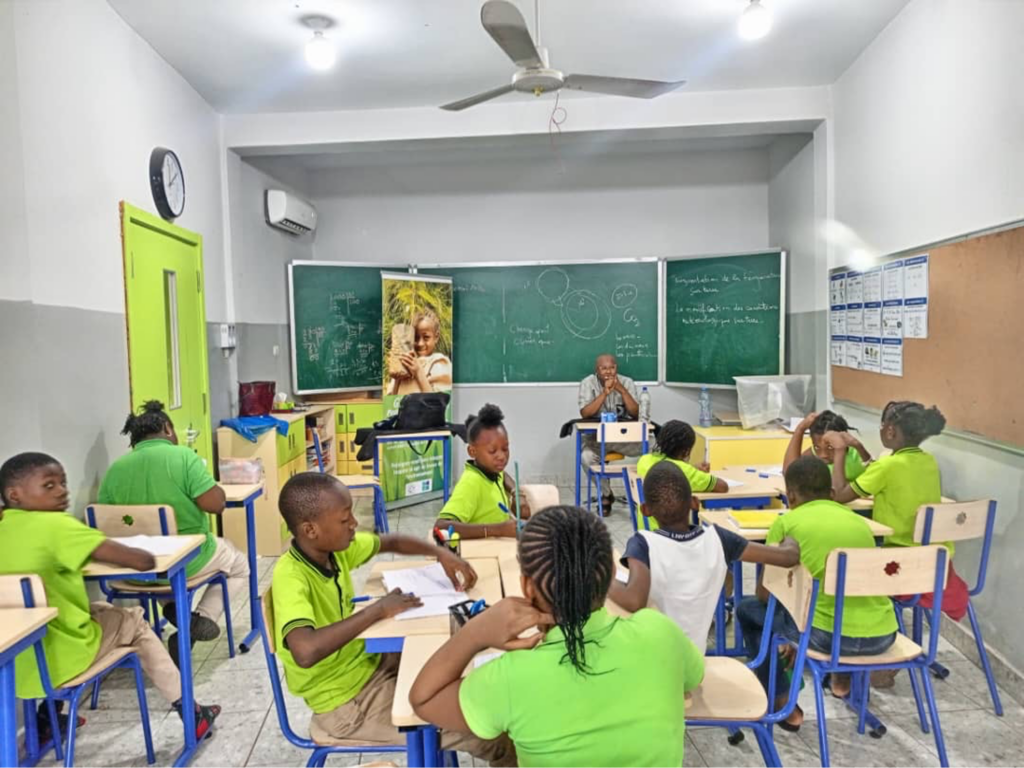
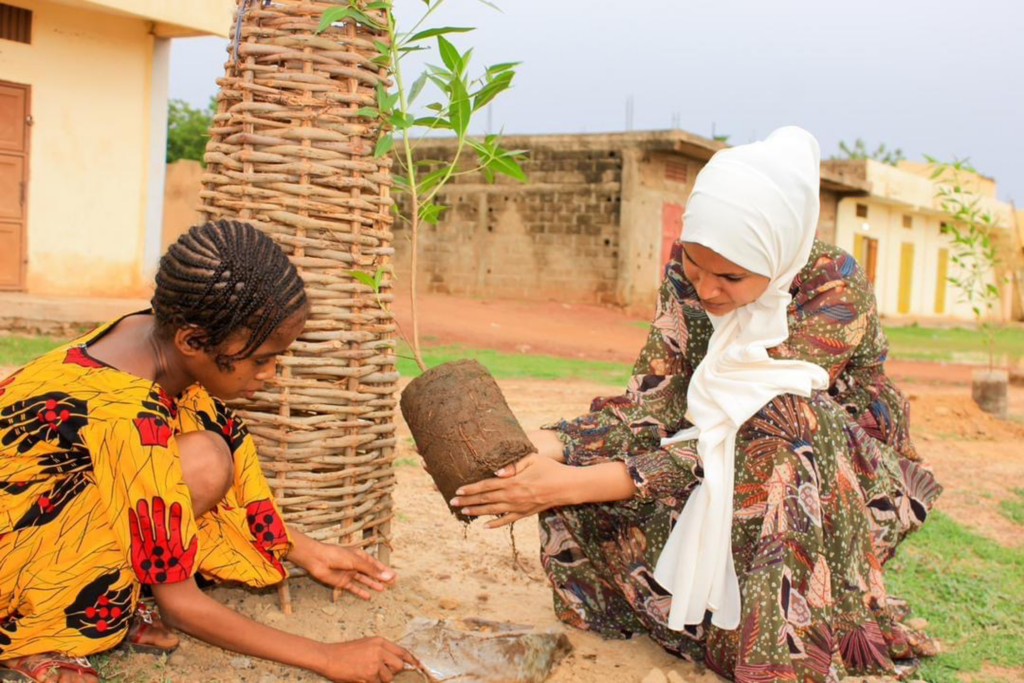
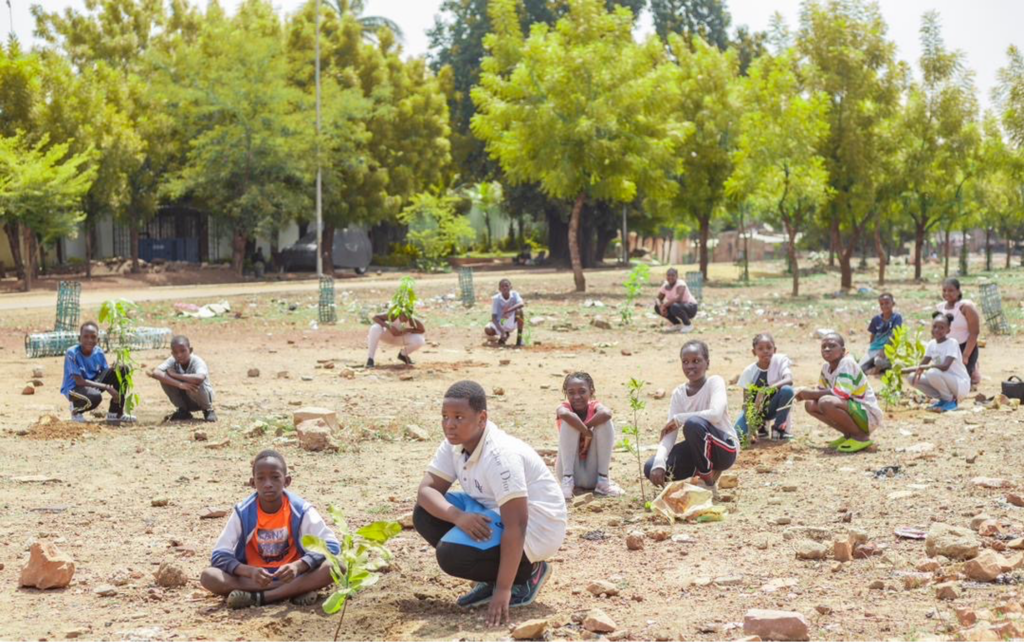
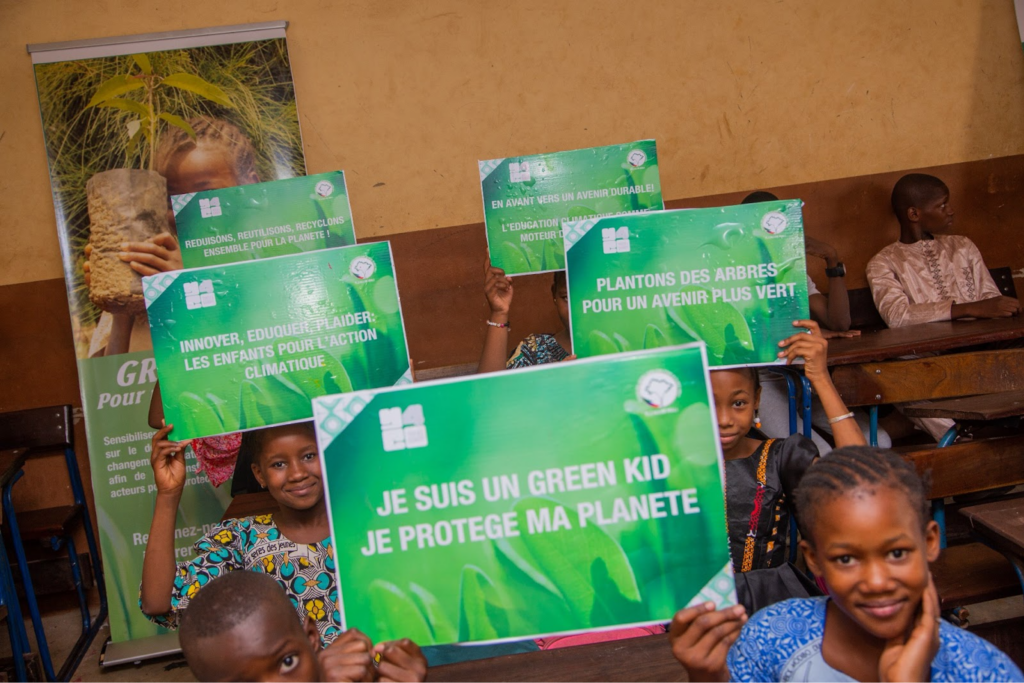


 NAME
NAME


